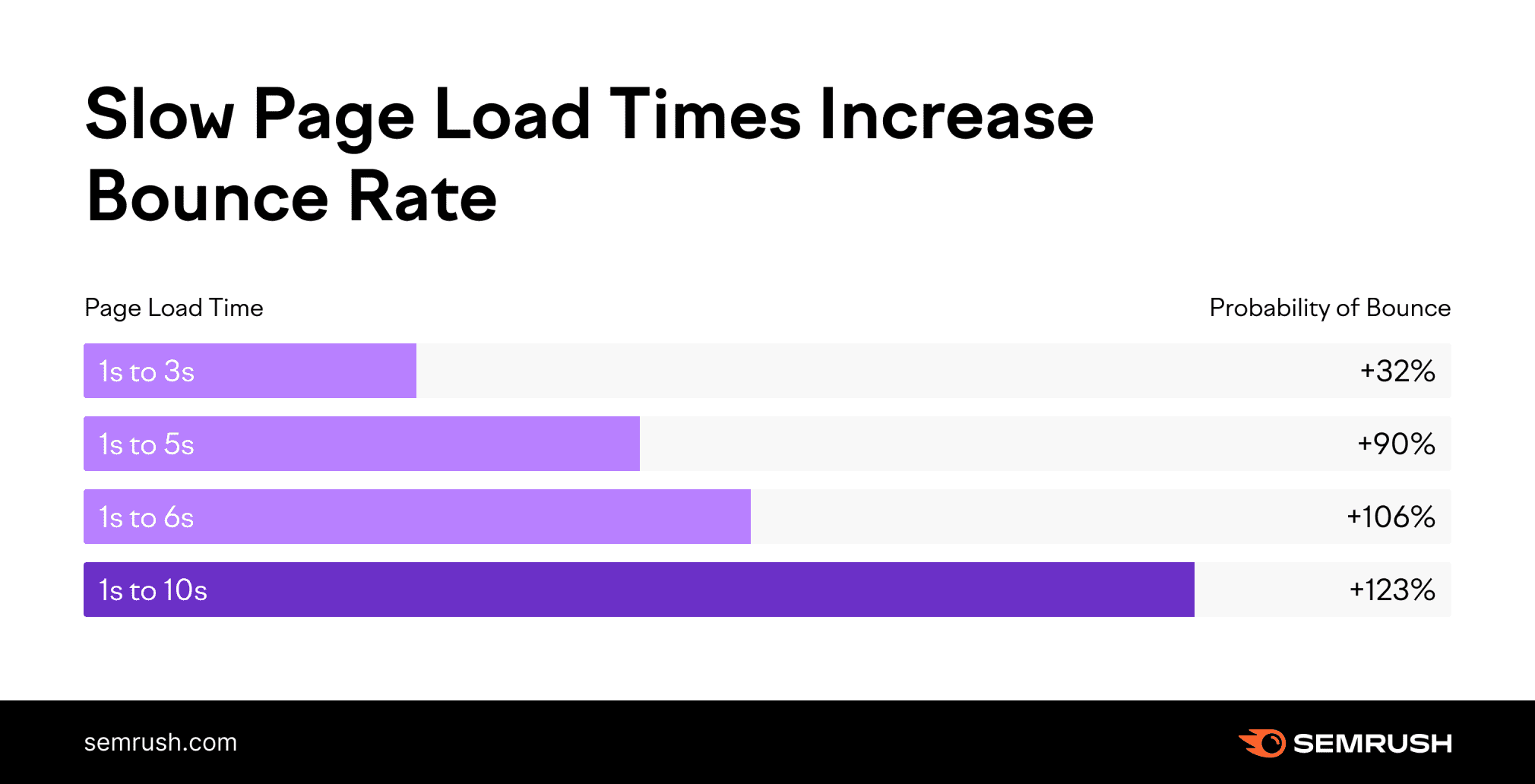
Why Page Speed is Critical for SEO: Boost Your Rankings with Faster Loading Times
In the world of online visibility and search engine optimization (SEO), the speed at which your web pages load plays a crucial role in determining your website’s success. Why Page Speed is Critical for SEO cannot be understated, as it directly impacts your rankings in search engine results pages. In today’s fast-paced digital landscape, users expect websites to load quickly and efficiently. Failure to meet these expectations could result in potential visitors bouncing off your site and negatively impacting your SEO efforts. By understanding the significance of page speed and implementing strategies to enhance loading times, you can boost your rankings and improve the overall user experience on your website.
Page speed is a crucial factor in determining user experience on a website. When a webpage loads quickly, users are more likely to stay engaged and satisfied with their browsing experience. Slow loading times can frustrate visitors and lead to high bounce rates, which in turn can negatively impact your SEO rankings. Search engines like Google prioritize websites that provide a seamless user experience, including fast loading times.
Having a fast-loading website not only improves user satisfaction but also increases the likelihood of visitors exploring more pages on your site. This can lead to higher engagement metrics such as longer session durations and lower bounce rates, both of which are important signals for search engines when determining the quality and relevance of a website. By optimizing your page speed, you can enhance user experience, boost SEO rankings, and ultimately drive more organic traffic to your site.
Mobile page speed is a critical factor for SEO success. With the increasing number of users accessing websites on their mobile devices, Google has made mobile-friendliness and speed a top priority for ranking websites. A fast-loading mobile site not only provides a better user experience but also helps search engines index and rank your site higher in search results.
When it comes to SEO, mobile page speed directly impacts your website’s visibility and ranking on search engine results pages. Slow-loading mobile sites can lead to higher bounce rates, lower user engagement, and ultimately lower organic traffic. By optimizing your mobile page speed, you can improve your site’s performance, increase user satisfaction, and boost your chances of ranking higher in search results. To stay ahead in the competitive online landscape, prioritize mobile page speed as a key component of your SEO strategy.
Page speed plays a crucial role in determining the bounce rate of a website. Bounce rate refers to the percentage of visitors who navigate away from a website after viewing only one page. A slow-loading website can frustrate users and lead them to abandon the site before fully engaging with its content. This can result in a high bounce rate, which is not favorable for SEO.
When a website loads quickly, visitors are more likely to stay on the site longer and explore multiple pages. A fast-loading website provides a better user experience, encouraging visitors to interact with the content and engage with the site. This can lead to lower bounce rates and higher user engagement, which are positive signals for search engines and can help improve the website’s SEO performance. In essence, optimizing page speed is not just about improving user experience, but also about enhancing SEO rankings by reducing bounce rates and increasing user engagement.
Page speed plays a crucial role in determining the success of your website’s conversion rates. When your website loads quickly, visitors are more likely to stay engaged and explore your content, leading to a higher chance of conversion. This is because fast-loading pages provide a better user experience, reducing bounce rates and increasing the likelihood of visitors taking desired actions on your site, such as making a purchase or filling out a contact form.
Furthermore, search engines like Google prioritize websites that offer a seamless user experience, including fast loading times. By optimizing your page speed, you not only improve user satisfaction but also boost your search engine rankings, ultimately driving more organic traffic to your site and increasing conversion opportunities. In essence, investing in improving your page speed can have a direct impact on your website’s conversion rates and overall online success.
Website loading times are crucial for SEO performance, as search engines like Google prioritize sites that load quickly. Several factors influence website loading times, including server speed, image file sizes, code optimization, and browser caching.
Optimizing these factors can significantly improve your website’s speed and ultimately boost your search engine rankings. To enhance server speed, choose a reliable hosting provider and reduce server response times. Compressing image file sizes and utilizing responsive design can help decrease loading times on mobile devices. Additionally, optimizing code by minimizing CSS and JavaScript files and enabling browser caching can further enhance website performance.
By addressing these factors that influence website loading times, you can create a faster and more efficient site that not only improves user experience but also enhances your SEO efforts. This optimization will help search engines crawl and index your site more effectively, ultimately leading to higher rankings in search results.
Page speed is a crucial factor in determining your website’s SEO performance. A faster loading website not only provides a better user experience but also signals to search engines that your site is reliable and trustworthy. To improve page speed and boost your SEO rankings, consider implementing the following strategies.
Firstly, optimize your images by compressing them without compromising quality. Large image files can slow down your website significantly, so it’s essential to use compressed images to reduce loading times. Additionally, leverage browser caching to store static resources like images, CSS, and JavaScript on users’ devices, allowing for quicker loading when they revisit your site.
Furthermore, minify CSS, HTML, and JavaScript files by removing unnecessary spaces and characters. This optimization technique reduces file sizes and helps improve page speed. Lastly, consider using a content delivery network (CDN) to distribute your website’s content across multiple servers worldwide. This ensures faster loading times for users located in different regions. By implementing these strategies, you can enhance your website’s page speed and ultimately improve your SEO performance.
Monitoring and measuring your website’s page speed is crucial for SEO success. Slow loading times can negatively impact your site’s search engine rankings and user experience. Luckily, there are several tools available to help you track and improve your page speed.
One popular tool is Google’s PageSpeed Insights, which provides a detailed analysis of your website’s performance and offers suggestions for optimization. Another useful tool is GTmetrix, which allows you to test your site’s speed from different locations and devices. By regularly using these tools to monitor your page speed, you can identify areas for improvement and make necessary adjustments to enhance your site’s overall performance and SEO rankings. Remember, a faster loading website not only improves user experience but also boosts your chances of ranking higher in search engine results pages.
Page speed is a crucial factor in determining a website’s ranking on search engine results pages (SERPs). Numerous case studies have shown a direct correlation between faster loading times and higher search engine rankings. For instance, a study by Google found that websites with slower loading speeds experienced higher bounce rates and lower user engagement, ultimately leading to lower rankings in search results. In contrast, websites with faster loading times not only provided a better user experience but also received a boost in their SEO rankings.
Another case study conducted by Moz revealed that improving page speed led to a significant increase in organic traffic and higher search engine rankings. By optimizing their website’s loading times, businesses were able to attract more visitors, enhance user experience, and ultimately improve their SEO performance. In today’s competitive online landscape, having a fast-loading website is essential for maximizing SEO success and staying ahead of the competition. By prioritizing page speed optimization, businesses can not only improve their search engine rankings but also drive more traffic and conversions to their website.
One common mistake that can slow down website loading times is having large image files that are not optimized for the web. When images are too big, they take longer to load, causing delays for your visitors. To fix this issue, make sure to resize and compress your images before uploading them to your website.
Another mistake that can hinder website loading times is using too many plugins or scripts. Each plugin or script added to your site requires additional processing time, which can slow down loading speeds. To improve performance, review and remove any unnecessary plugins or scripts that are not essential to your site’s functionality.
Additionally, not utilizing browser caching can also contribute to slow website loading times. Browser caching allows web pages to be saved locally on a user’s device, reducing the need to reload the page every time it is visited. By enabling browser caching, you can help improve loading speeds and provide a better user experience for your visitors.



